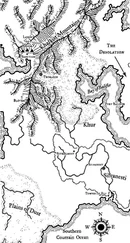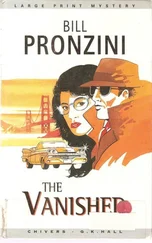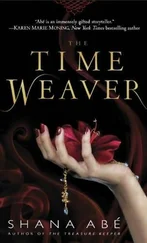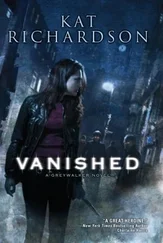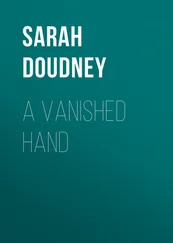The hallway was carpeted in an old-fashioned maroon, but the walls were cream, hung with pictures of meadows and black-and-white photographs of old steam trains. On the left was a staircase, on the right a door into a living room. Same maroon carpet, same cream walls. A TV, two sofas, more paintings, more photos of trains. As I stepped further in, the carpet like a sponge beneath my wet boots, I saw brass-framed pictures of a young Smart looking drawn and emotionless: one in front of a Tube roundel, another outside the entrance of a station, the picture scorched by bright summer sun. Next to that was a picture of his father in the uniform of the London Underground, a ten- or eleven-year-old Smart at his leg. The photos were lined up on the coffee table, one after the other, all of them black and white, all of them the same theme, except the last one, which was in colour.
This one was on its own.
It sat away from the others, on the edge of the table, and in front of it was a wooden bowl, placed there like an offering. It was full of hair. I took another step closer. In the photo, Smart was sitting on a chair beside a hospital bed, his father – mask over his face, mobile oxygen tank at his feet – beside him. The old man, stick-thin and shaven-headed, looked like he had hours left. But it wasn’t that that drew my attention. It was what his father was wearing: a red T-shirt, with checked sleeves.
The shirt had belonged to him.
That’s why it had been so important to Smart, why he’d had it with him today. And it must have been why he’d worn it the day he took Sam. Not only because it was red and he would merge with the other protesters, although that would have been in his thinking, but because it was another part of his routine, like the shaved head. A connection to his father. And the hair in the bowl – presumably Smart’s hair – was the other. He hadn’t been shaved at the station earlier, so this was fresh. The second part of the routine. The way he remembered his father – became like him, channelled him – on the anniversary of his death.
Behind me the front door was still open, rain slapping against the driveway and running off the porch roof. I left it like that, realizing the sound would disguise my movement inside the house, even if it immediately let him know I was here. I moved up the stairs. At the top was a small landing area with three doors: two bedrooms, one bathroom. Everything was neat and tidy, but old-fashioned – like a time capsule – and I wondered whether this had been his father’s place.
I paused. Listened.
All I could hear was the rain hammering against the glass at the upstairs windows and hitting the steps at the front of the house. But as I moved around, checking hiding places, making sure he wasn’t upstairs, I heard a voice.
I stopped in the centre of Smart’s bedroom and felt the silence settle around me. Beyond the rain there was nothing now: the faint sound of a car somewhere, a beep of a horn. I must have heard one of his neighbours. Except, as I moved back downstairs, the house creaking around me, as if shifting and changing shape, I started to feel a nagging sense that it wasn’t one of his neighbours I’d heard, but someone much closer.
Pausing in the hallway, I looked back out through the front door at the deserted street, then into the living room, then on to the kitchen ahead of me. I primed myself, feeling my muscles tense, and edged forward. The kitchen was empty. I looked to the front door again, and turned back to the kitchen. A small, pokey L-shaped unit, wood painted white, with pale green worktops like beds in a hospital ward. A toaster. A pot of utensils. Some spices in metal jars. Where the hell is he? Directly to my left, two steps led down to a sunken office, empty except for a cheap-looking computer desk, a PC connected to a modem and a blue chair with four wheels.
Beyond that, on the far side, was the back door.
I took in the kitchen again. Over the sink was a window, looking out over a small garden. I moved across to it, the wet soles of my boots making a faint squeak on the lino. The garden was narrow but long. At the other end were a row of high trees, thick growth – weeds and long grass – clawing at their trunks. On the other side of the trees, partially visible through holes in the canopy, was the old line at Fell Wood. As rain and wind passed through, branches moved and opened up spaces in the leaves, and – on the other side – I saw a tall, cream-coloured structure I recognized.
The ventilation shaft on top of the Tube station.
I stepped away and, as I did, a smell drifted towards me, a mix of metal and old dishcloths. The kitchen seemed pretty clean, the worktops wiped down, no food out, no crumbs even, but the longer I stood there, the stronger the odour got. I started opening up the kitchen cupboards one by one, trying to locate the smell, but despite all the things Smart was, all the terrible suffering he’d wrought, he’d managed to build a convincing lie. Everything spoke of normality. In the corner was the fridge, humming gently. And then my eyes happened to fall on the slim gap between the fridge and the wall.
There was a key, taped to the wall.
I reached in and ripped it off. It was a small brass Yale key, marked with a single red dot. I flipped it over, hoping to find some clue as to what it was for, when the smell came again. Less metal, more rot: maybe not wet dishcloths. Or maybe not only that.
Pocketing the key, I headed down into the office and across to the back door. I tried the key, but it didn’t fit. Then I realized it didn’t matter anyway: like the front door, the back was unlocked. My nerves were immediately put on edge. I swivelled, facing back across the office, but no one was there. No sound from the house. And as the wind rushed past me, drawn along the hallway from one door to the next, I noticed a tiny stain on the carpet, an irregular drip pattern running from the steps, across towards the back door. Not much of it, but enough.
Dried blood.
He’d tried to wash it out of the carpet, but had either given up or failed to see it all. I looked out through the door, seeing if there was any more, but if it had once carried on, out to the patio and across the lawn, it had been washed away by the rain. Yet the blood on the carpet seemed to be leading out of the empty house.
In the direction of the station.
73
There was a small gap in the trees, leading from Smart’s garden to the line. As I emerged on to the path, about forty yards from the overground platform and the Tube station adjacent to it, the sound seemed to drop away. The patter of rain against leaves. A faint wind, whispering past me. Nothing else. As I stood there, a strange feeling of loneliness formed in me, as if I was miles from anywhere safe.
Moving to the platform, I reached up and dragged a piece of glass towards me. It was jagged but sharpened to a point, its surface creamy and coated with dirt. Removing a tissue from my pocket, I wrapped it around the end to avoid cutting myself, and headed for the path to the Tube station entrance.
At the top of the concrete steps, I paused.
I was drenched, water running off my face, soaking into my clothes, but I could hardly even see it on myself the light was fading so fast. I reached into my pocket and activated the torch function on my phone – then used it to illuminate the path down.
I could feel dirt and masonry crunch beneath my boots as I took the steps two at a time, light dancing off the walls, rain fading behind me as I entered the building. Once I was inside, the relentlessness of the dark made me pause, almost surprised me, even though I’d walked this same route two days before. I stepped further in and as I did it was as if something woke. A sound, like a voice, seemed to pass from one side of the ticket hall to the other, and all that remained was a chill; a coolness which sent goosebumps scattering up my arms and across my body. I swung the phone around the room, letting it settle on the space next to the ticket office.
Читать дальше


